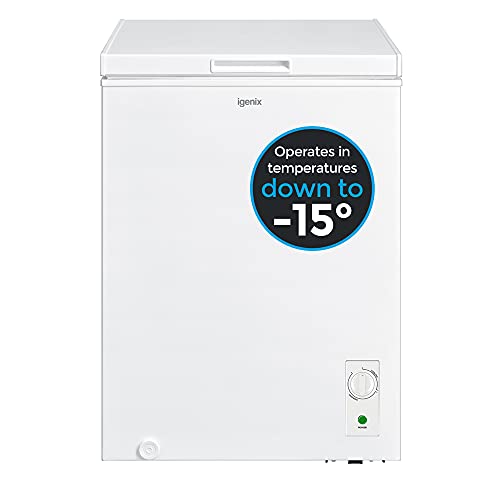Yes, you can freeze eggs in a freezer.
Freezing eggs can be a convenient way to extend their shelf life and have them readily available for future use. However, it’s important to know the proper techniques for freezing eggs to ensure their quality and safety. In this article, we will explore the steps to freezing eggs and address some common questions about this process.
How to freeze eggs
If you have some extra eggs that you want to freeze, here are the steps you can follow:
- Crack the eggs: First, crack the eggs into a bowl and gently whisk them together. This will ensure that the yolks and whites are well-mixed and will make it easier to pour the eggs into the freezer container.
- Add a stabilizer: To help maintain the quality of the eggs during freezing, you can add a stabilizer such as salt or sugar. A general guideline is to add a teaspoon of sugar or half a teaspoon of salt per cup of eggs. Stir the stabilizer into the eggs until it is fully dissolved.
- Pour into containers: Pour the whisked eggs into freezer-safe containers. You can use ice cube trays, muffin tins, or even freezer bags depending on your preference. Leave some space at the top of the containers to allow for expansion during freezing.
- Label and freeze: Label the containers with the date and the number of eggs inside. Place the containers in the freezer and let them freeze until solid. This usually takes around 4-6 hours, depending on the size of the containers.
How long can you freeze eggs?
Eggs can be frozen for several months without significant loss in quality. The recommended maximum freezing time for eggs is around 4-6 months. However, it’s important to note that the longer eggs are frozen, the more their quality may deteriorate. For the best taste and texture, it’s recommended to use frozen eggs within the first few months of freezing.
How to thaw and use frozen eggs
When you are ready to use the frozen eggs, here’s how you can thaw and use them:
- Thaw in the refrigerator: The safest and recommended method to thaw frozen eggs is to transfer them from the freezer to the refrigerator. Place the frozen eggs in a covered container and let them thaw slowly in the refrigerator. This usually takes around 24 hours, depending on the size of the container and the number of eggs.
- Use within 2 days: Once the eggs are thawed, it’s important to use them within 2 days. This is because freezing and thawing can affect the structure of the eggs, making them more susceptible to bacterial growth. Be sure to check the eggs for any signs of spoilage before using them.
- Use in various recipes: Thawed eggs can be used in a variety of recipes, such as baking, cooking, or making scrambled eggs. However, keep in mind that the texture of thawed eggs may be slightly different from fresh eggs. It’s always a good idea to test the thawed eggs in a small portion of the recipe before using them in larger quantities.
Are there any risks associated with freezing eggs?
While freezing eggs can be a convenient method for preserving them, there are a few risks to consider:
- Texture changes: Freezing and thawing can cause changes in the texture of eggs. Thawed eggs may become slightly watery or less fluffy compared to fresh eggs. While this may not be ideal for certain recipes, it may not significantly impact the final outcome in others.
- Bacterial growth: Freezing eggs can affect their structure, making them more prone to bacterial growth. To minimize this risk, it’s important to handle and store the eggs properly. Always check for signs of spoilage before using thawed eggs and discard any eggs that show signs of contamination.
The benefits of freezing eggs
Freezing eggs can offer several benefits when done correctly:
- Extended shelf life: Freezing eggs allows you to extend their shelf life beyond the typical period of 3-5 weeks. This can be especially useful if you have a surplus of eggs or want to stock up for future use.
- Convenience: By freezing eggs, you can have them readily available whenever you need them. This can be particularly helpful if you frequently use eggs in your cooking or baking.
- Reduced waste: Freezing eggs can help reduce food waste by preventing them from going bad before they can be used. Instead of letting eggs go to waste, you can freeze them and use them at a later time.






